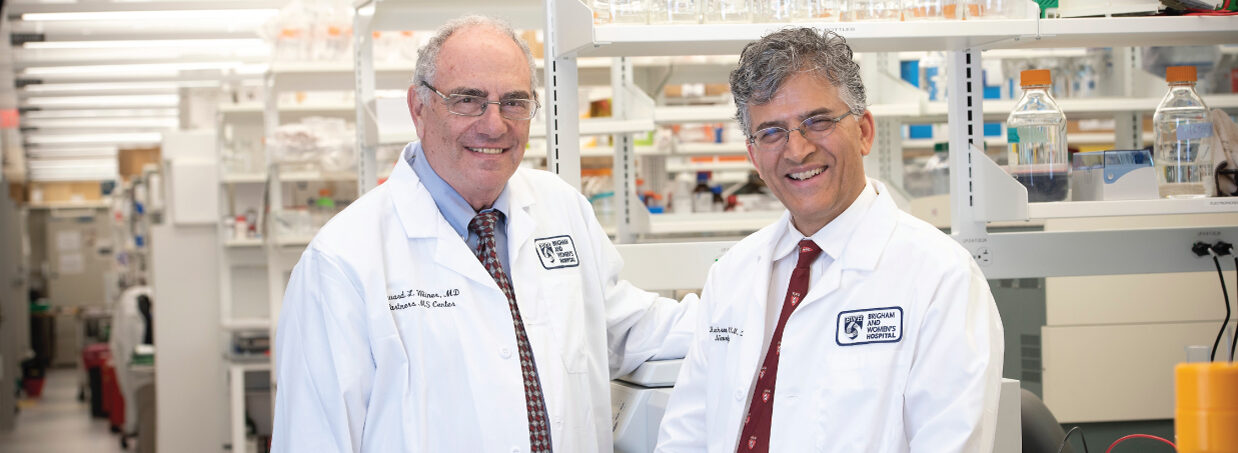
$5 million gift catalyzes next phase of Progressive MS Initiative
“We’re driven to change progressive MS patients’ and families’ lives for the better. This philanthropy gives us the fuel.” –VIJAY KUCHROO, DVM, PHD
When Brigham neurologist Howard L. Weiner, MD, and immunologist Vijay Kuchroo, DVM, PhD, started the Progressive MS Initiative five years ago, they took on an ambitious research project to understand and treat the most debilitating form of multiple sclerosis. While therapies exist for the most common form of the disease, known as relapsing-remitting MS, effective treatments are not yet available for progressive MS, which causes a worsening decline in cognition, vision, and mobility.
With a core group of 15 scientists, Weiner and Kuchroo are planning and implementing the next five years of the Progressive MS Initiative thanks to a renewed $5 million gift from the Water Cove Charitable Foundation.
“We’re so grateful for this incredible continued support and are confident our work will get us closer to identifying successful treatments,” says Kuchroo.
“To get there, we need to explore many avenues,” adds Weiner. “That’s why we designed the initiative with six areas of scientific discovery.”
Two areas of focus in this next phase include advanced imaging methods and novel treatment approaches for progressive MS. For example, by using PET imaging with radiotracers, researchers can see microglial cells in the brain that become inflamed in individuals with progressive MS. In phase 1 of a clinical trial for a nasal vaccine developed by Weiner, PET imaging showed the vaccine reduced this inflammation. The team recently finished phase 2 of the clinical trial, which provided more evidence for the vaccine’s efficacy.
“This is a nasal spray of a monoclonal antibody—we were the first in the world to do it this way,” says Weiner. “Also, with new imaging capabilities at the Brigham, we’re able to see and understand characteristics of progressive MS, which was simply not possible before.”
The team is seeing momentum in all research areas, including work on a blood biomarker for the disease, studies of the microbiome and specialized immune cells in the brain, and the largest clinical longitudinal MS study worldwide, called the CLIMB study. Altogether, this work is providing invaluable insights into tackling this devastating disease.
“We’re driven to change progressive MS patients’ and families’ lives for the better,” says Kuchroo. “This philanthropy gives us the fuel.”